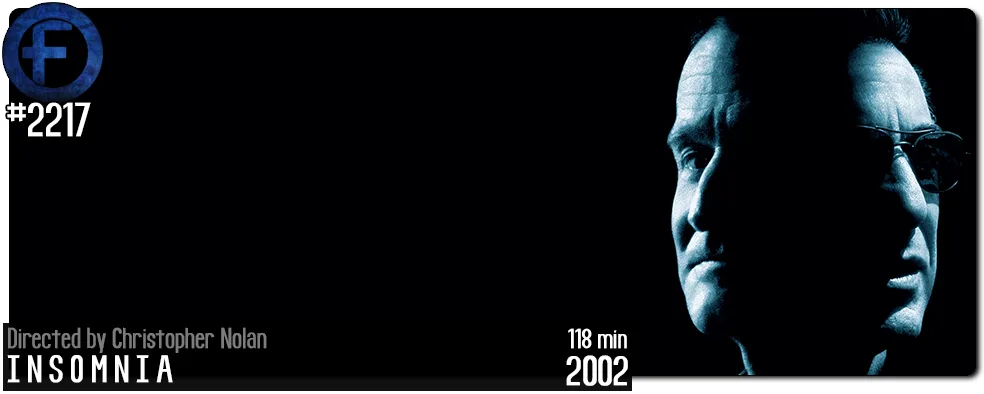Movie Review – Insomnia (2002)
Principal Cast : Al Pacino, Robin Williams, Hilary Swank, Maura Tierney, Martin Donovan, Nicky Katt, Paul Dooley, Crystal Lowe, Jay Brazeau, Larry Holden, Kerry Sandomirsky, Lorna Cardinal, Paula Shaw.
Synopsis: Two Los Angeles homicide detectives are dispatched to a northern town where the sun doesn’t set to investigate the methodical murder of a local teen.
********
Christopher Nolan’s 2002 Alaskan-set crime thriller Insomnia is a film that showcases the talents of Al Pacino and Hilary Swank, yet unfortunately, it also delivers major shortcomings in terms of writing and direction. While the film offers moments of suspense and intrigue, and a typically machismo-driven performance by Pacino, it ultimately falls short in delivering a truly memorable narrative.
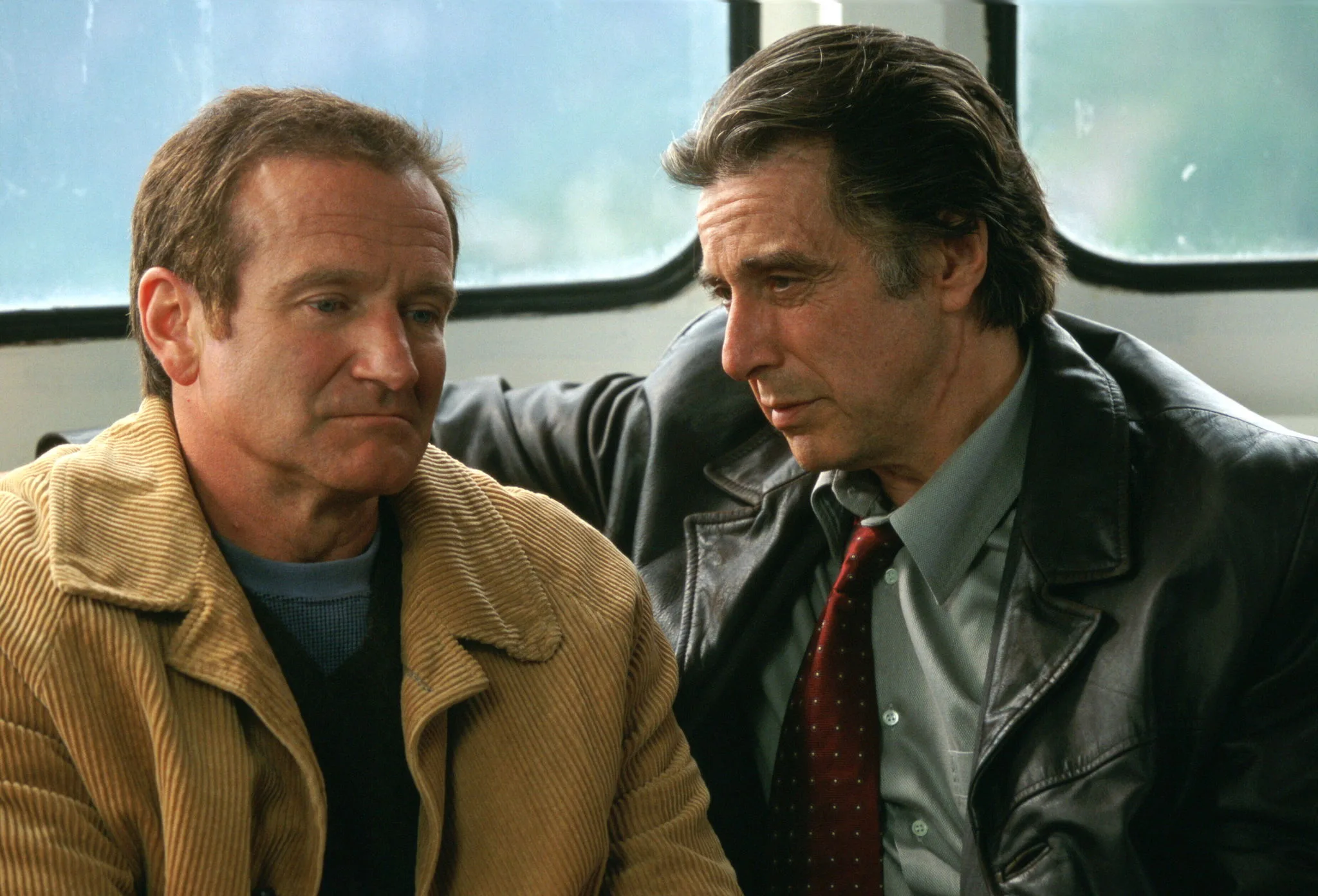
The film’s plot revolves around a seasoned detective, Will Dormer, played by Al Pacino, who, along with his partner Hap Eckhart (Martin Donovan), is sent to investigate a murder in a small Alaskan town. As they delve into the case, Dormer finds himself plagued by insomnia due to the relentless daylight in the region, which falls inside the Arctic Circle and remains lit six months of the year. The film takes a dark (pun intended) turn when a tragic incident occurs during the investigation, causing Dormer to make a morally challenging decision. This decision haunts him as he becomes the target of a relentless cat-and-mouse game with the enigmatic crime novelist Walter Finch, portrayed by Robin Williams.
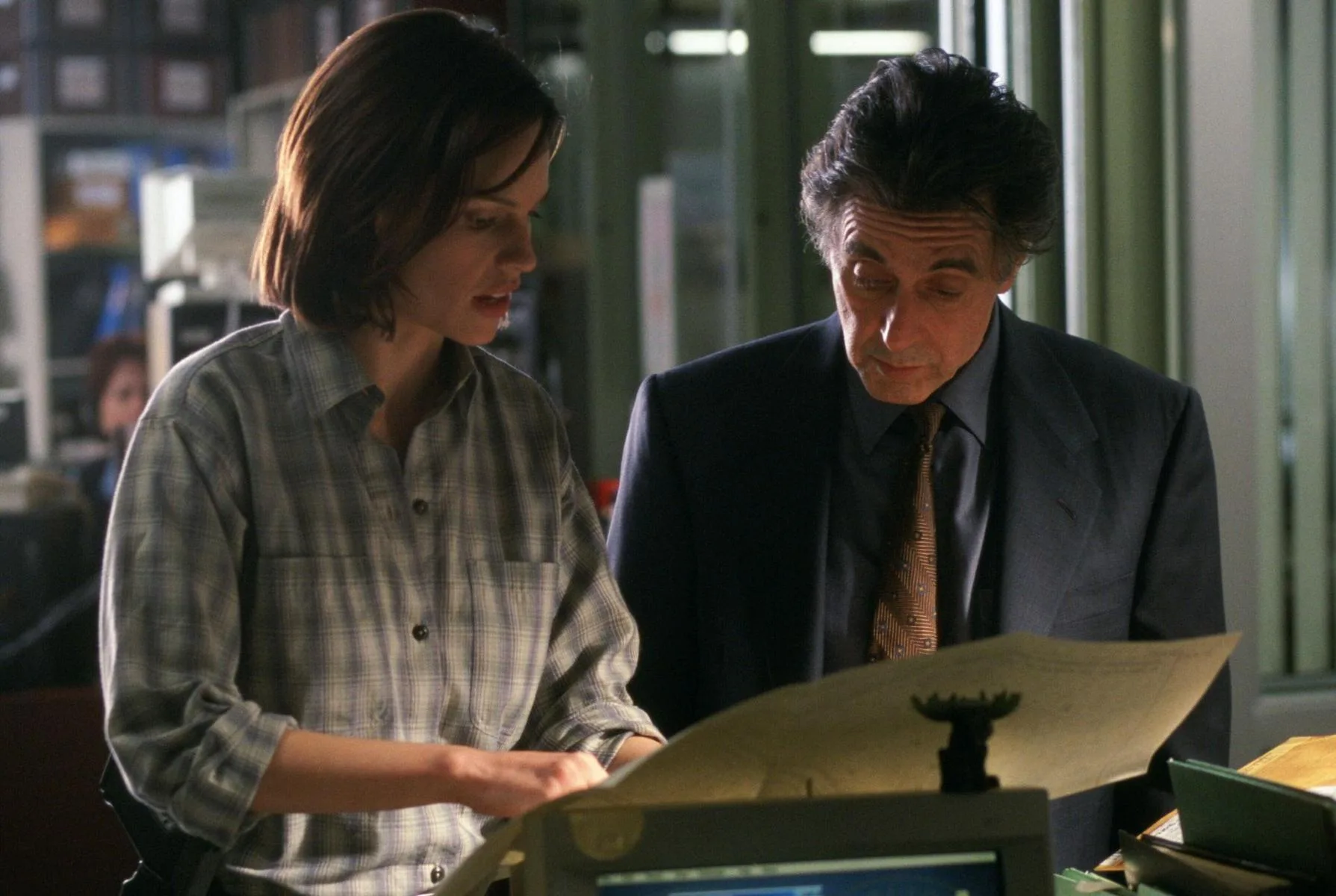
Al Pacino and Hilary Swank both deliver strong performances. Pacino’s portrayal of Dormer captures the essence of a sleep-deprived detective teetering on the edge of sanity, haunted by his past actions and trying to maintain his professionalism in a high-pressure environment. Swank, in her role as Detective Ellie Burr, brings a sense of determination and integrity to her character, serving as a foil to Pacino’s tarnished cop. Their scenes together create a compelling dynamic and add depth to the film. One of the more unusual aspects of Insomnia is Robin Williams’ casting as the antagonist. While Williams was undoubtedly a versatile actor, his performance as Finch falls short of delivering the level of creepiness that is expected in similarly serious roles such as One Hour Photo (coincidentally released the same year) or The Final Cut. His portrayal feels somewhat forced, perhaps overplayed, and it lacks the depth and subtlety that could have made Finch a truly chilling character.
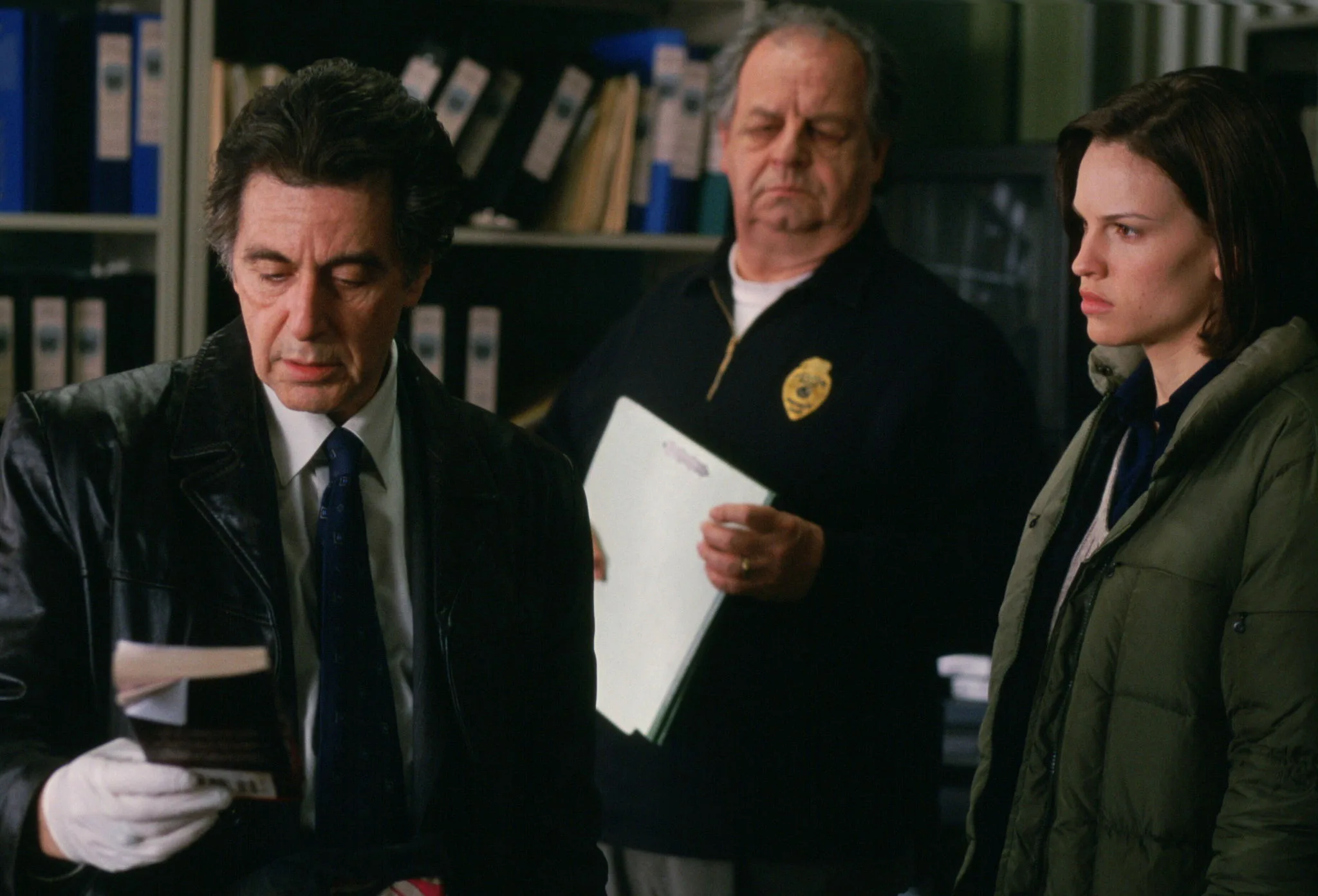
However, where Insomnia really falters is in its writing. The plot feels somewhat inert and predictable, adhering to many detective-thriller conventions without offering much in the way of originality. The characters, including Pacino’s Dormer, Swank’s Burr, and Williams’ Finch, feel overwhelmingly boilerplate, derivative in that grey 90’s genre flavour, lacking the complexity and depth that could have made the film truly exceptional. The film’s moral dilemmas, while promising, are resolved in a somewhat formulaic manner, leaving the audience with a sense of unfulfilled potential. The final big Pacino/Williams confrontation is of particular note, being both indifferent to the characters and kneecapping the urgency of the central plot.

The direction of the film, helmed by Christopher Nolan, falls short of the visionary standards he would later become known for. While the film has moments of visual beauty, particularly in its depiction of the Alaskan landscape, it lacks the distinctive style and narrative innovation that would later define Nolan’s work. The pacing can be sluggish at times, failing to maintain the tension required for a thriller of this nature, and the leaps in time and plot development feel a touch clunky. One suspects some material from Hillary Seitz’ screenplay might have been left on the cutting room floor, because it certainly feels that way. The tonal choices in Insomnia are perplexing. At times, the film tries to strike a balance between psychological thriller and character drama, but the transitions between these tones feel awkward and disjointed. It struggles to maintain a consistent atmosphere, which detracts from the overall viewing experience.
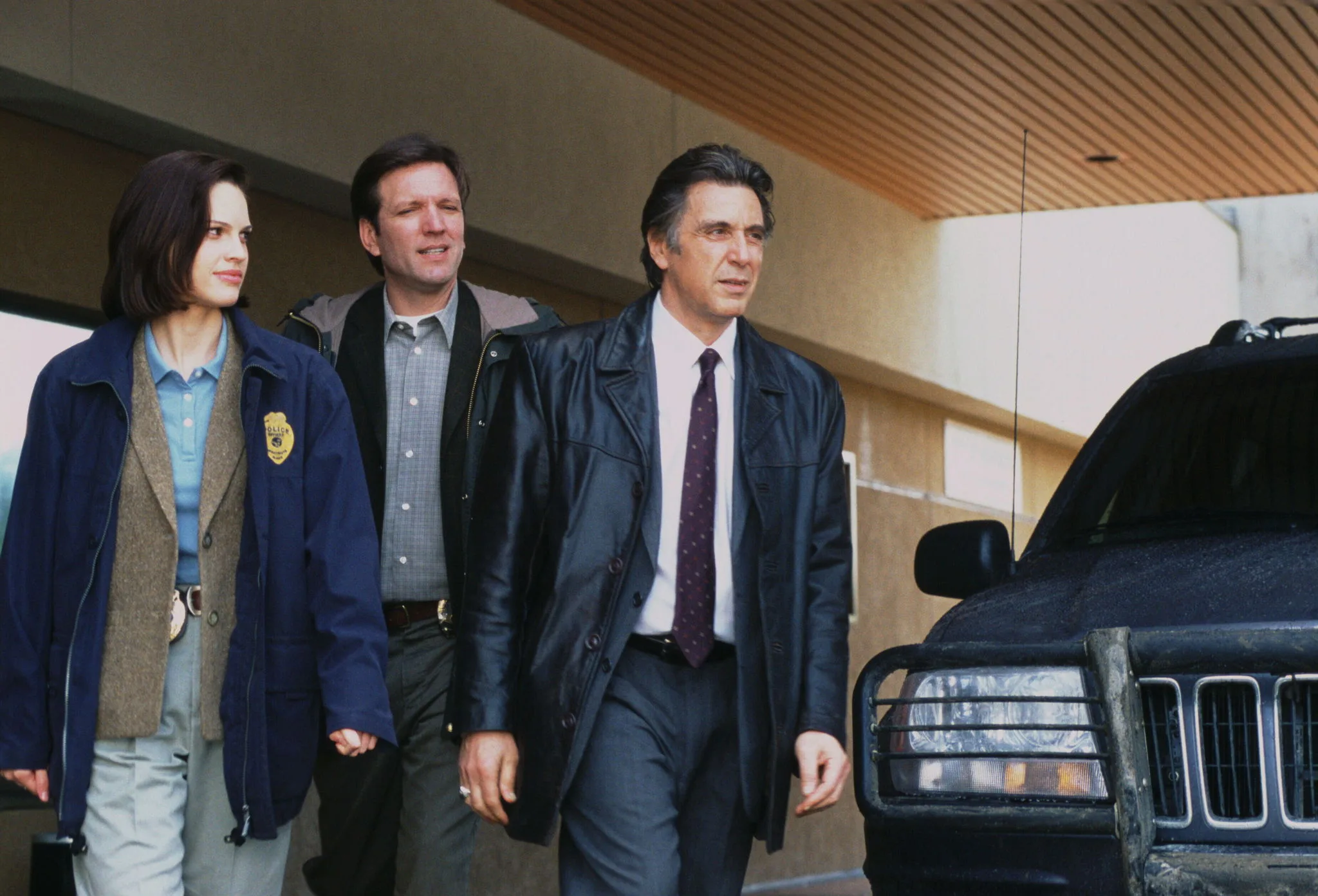
On a more positive note, the production design of Insomnia is notable. The film effectively captures the desolate, otherworldly quality of the Alaskan setting, creating an atmosphere of isolation and unease. Cinematographer Wally Pfister’s work lends the film a crisp and haunting visual style that is a testament to the production’s artistry. The primary theme of the film, sleeplessness, is mirrored in the score’s musical choices. The recurring use of eerie, ambient sounds, along with discordant tones and haunting melodies, evokes the disorienting effects of insomnia. This musical motif, written by David Julyan, underscores the emotional and psychological struggles of Al Pacino’s character, who is unable to escape the relentless daylight of an Alaskan summer. The isolation and disorientation caused by his lack of sleep are palpable in the unsettling music that accompanies these moments, creating a sense of unease that mirrors his mental state.
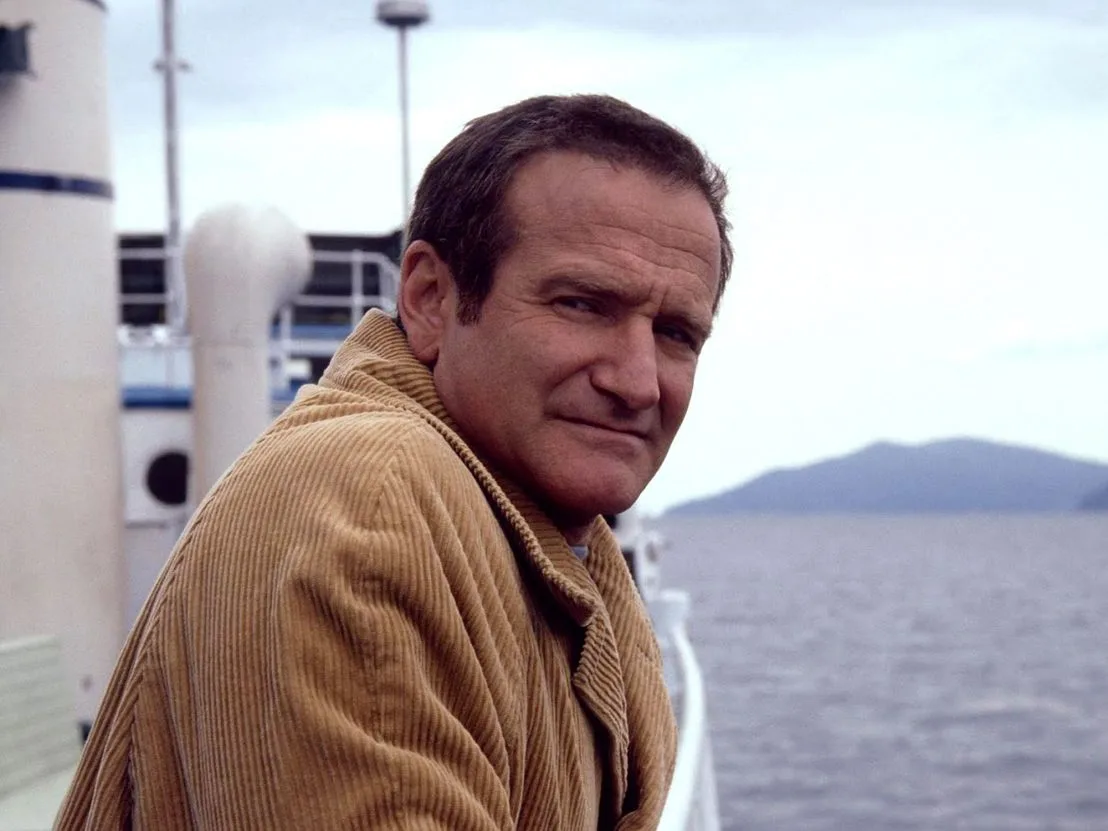
Insomnia is a film with its share of strengths, including solid performances from Al Pacino and Hilary Swank, as well as impressive production design. However, it falls short in terms of its writing, direction, and tonal choices, which prevent it from reaching the heights of excellence that Christopher Nolan would later achieve in his career. Furthermore, while Robin Williams’ casting as a menacing antagonist is an interesting choice, he, through some weird tonal choices, doesn’t quite capture the level of creepiness one might expect in a serious thriller. Despite its potential, Insomnia ultimately remains a somewhat forgettable entry in Nolan’s filmography.
Note: This review was written by the author with the aid of Artificial Intelligence.

